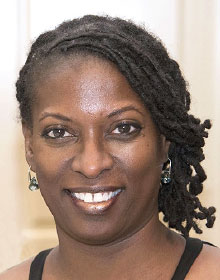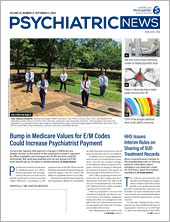When Xenia Johnson Bhembe, M.D., founded The Race Recovery Project two years ago, she did not expect that many of the conversations the organization would facilitate would take place against the backdrop of a pandemic that has brought the depth of structural racism to the forefront of America’s consciousness.
But the COVID-19 pandemic and the news coverage of the Black community’s heightened risk has only highlighted the need that Johnson Bhembe is trying to meet. “Racism—we all know it’s there,” she said during a livestreamed panel discussion in April titled “Managing Mental Health While Black.” “It’s the water in which [Black Americans] swim in this country. How do we keep from seeing those messages, seeing the obstructions they present, and not internalizing the negative concepts that they present for us?”
Addressing not only external but also internalized racism is at the core of The Race Recovery Project. Johnson Bhembe, an assistant professor of clinical psychiatry at Harvard Medical School and director of Community Minority Affairs at the Cambridge Health Alliance, is trying to create a space in which Black Americans can find healing from racism, and doing so within the community, rather than a medical setting, is vital to her mission.
With a little permission to discuss their experiences with both internalized and external racism, the Black community is eager to unload how they feel about it, she told Psychiatric News. She thinks the project has gotten so much attention in part because of the surge in advocacy for racial justice following George Floyd’s death in Minneapolis in May. “But I also believe people are feeling the need to heal,” she said.
Internalized racism refers to the ways in which people adopt the assumptions about their race developed by white culture, Johnson Bhembe explained. It can be conscious or unconscious. “To live in a society that is white dominant, in some ways you have to adopt mannerisms, practices, even values that will allow you to be able to traverse your day, traverse your life, without much disruption or difficulty,” she said. “When you do that, you unknowingly adopt some of the practices and assumptions of white culture.”
Right now The Race Recovery Project exists on social media because of the pandemic, and Johnson Bhembe regularly hosts virtual conversations in which she invites guests to discuss topics such as Black history, white supremacy in Black lives, and racial justice protests related to Floyd’s death. A central theme is how to heal from both internalized and external racism, while simultaneously creating a space to celebrate and uplift Black voices.
“[The Race Recovery Project] encourages empathy,” she said. “Can you look at yourself through a different lens? Can you look at the story of your life not as a tragic tale, but as a record of triumph?”
Through her work, Johnson Bhembe is trying to topple the taboo around talking about Black lives within the structures of a white supremacist culture, which refers not to the nationalist movement but America’s predominantly white culture that continuously reinforces white privilege, she said. In such a world, talking about racism is incredibly difficult.
“The mental health system has not created space to talk about race and racism,” Johnson Bhembe said. “Of course, healing can happen when Black Americans find the right clinician, system, or program, but more often than not, Black individuals might feel that the conversations around how to heal the hurt caused by racism don’t happen in spaces that are formally for therapy.”
The Race Recovery Project has received more attention since the pandemic began. Some of the broadcasts have upward of 300 views on Facebook. The next step for Johnson Bhembe is to incorporate the project as a nonprofit organization and continue the online engagement.
Once it is safe to gather in person again, she plans to develop a manual and disseminate the message of The Race Recovery Project, presenting it in different parts of the country where individuals in a community can walk through a process of self-examination and the healing that comes with it, she said.
She is also conducting a survey on internalized racism, gauging participants’ agreements to statements such as “I wish I could have more respect for my racial group” and “I feel critical about my racial group.” The survey is meant to give respondents a chance to examine their own internalized racism. “I’m hoping it really illustrates for those in the Black community and beyond that internalized racism does exist, it does have an impact, and possibly we need to start a broader conversation about what we need to do about it,” she said.
The project is not tied to a medical institution because Johnson Bhembe wanted it to be rooted in the community. “Healing for Black Americans often comes in the form of community,” she said. But she’s hoping to use the survey results and the qualitative data collected from the conversations to bring clinicians and health systems more substantively into the conversation.
“How do we, as a medical community, begin to add these terms [such as internalized and external racism] to our medical lexicon and develop interventions?” she said. “We need to start asking those questions." ■
More information about The Race Recovery Project is posted
here.

